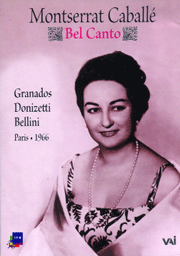A successfully earthy departure for Renée Fleming; Montserrat Caballé’s life and work on DVD
Her voice pitched an octave lower than in her opera and recital, Fleming’s CD “Haunted Heart” reflects the singer’s Sunday-night student gigs while studying at the Crane School of Music. Her cabaret singing was so good, tenor saxophonist Jean-Baptiste “Illinois” Jacquet invited her tour with him.
Fleming headed to the Eastman School of Music instead, choosing the path that has crowned her an operatic goddess of sorts.
On “Haunted Heart,” Fleming’s voice suggests influences as diverse as Joni Mitchell and Barbra Streisand, a genuine, beautiful voice that vocally and stylistically mesmerizes in tunes as different as Mitchell’s soul-tugging “River” and Fred Hersch’s gorgeous “Haunted Heart.”
Fleming first encountered the music of the brilliant, Grammy-nominated gay activist in the late 1990s. She later performed with Hersch in “Classical Action,” an AIDS benefit. His suave piano improvisations, matched by the guitar virtuosity of Bill Frissell, help raise Fleming to heights of sophistication sometimes absent from her other endeavors. The rare meeting of genres in their melding of Alban Berg’s 12-tone “Wozzeck” with Lionel Hampton’s “the Midnight Sun” is a trip.
Yes, there are a few question marks. Gustav Mahler’s “Liebst du um Schönheit,” sparingly accompanied by Frissell, sounds discomforting sung in a timbre usually associated with smoky dives. And when Fleming intones Emile Paladilhe’s “Psyché” in the higher voices she uses in recital, memories of Streisand crooning Gabriel Fauré’s “Après un reve” as though she were Grandma Goldberg doing the wash, flash warning signs. Stephen Foster’s “Hard Times Come Again No More” lacks simplicity, and there is an unwelcome sameness in Fleming’s unquestionably nuanced delivery.
But in the end, so what?
The rapturous beauty of Lennon and McCartney’s “In My Life,” Stevie Wonder’s “My Cherie Amour,” and Jimmy Webb’s “The Moon’s a Harsh Mistress,” let alone Hersch’s “Haunted Heart,” render this disc a triumph.
Although Spanish diva Montserrat Caballé once descended from the operatic stage to collaborate with Freddy Mercury in the beyond camp “Barcelona,” she mostly stuck to those realms within conquering distance.
One of those was the Salle Pleyel, where she made her Paris début on October 15, 1966. Captured by VAI on the black and white DVD “Montserrat Caballé: Bel Canto,” the performance shows Caballé in glorious voice, albeit a bit reserved interpretively.
After a selection from Granados’ “Goyescas,” Caballé launches into Donizetti’s “Vivi ingrato” from Roberto Devereux with an amalgam of passion and exquisitely floated pianissimos surpassed only by Beverly Sills a few years later. Her “Al dolce guidami” from “Anna Bolena,” with which she had conquered New York and the world the year before, remains incomparable save when set aside Caballé’s other live versions that evidence even greater lingering over mesmerizing gossamer highs. And if no one could do the final scene of Bellini’s “Il Pirata” like Callas, Caballé’s version nonetheless shows the voice remarkably free, her physical presence unflinchingly dramatic and convincing.
EuroArts’ DVD, “Caballé: Beyond Music,” offers some revelations. The documentary intersperses clips of live performances with interviews with Caballé, her family and a host of artists including Renée Fleming, Joan Sutherland and Mstislav Rostropovich.
Freddie Mercury hilariously confesses that he initially thought he would need to hold back so that he wouldn’t upstage the diva, followed by their actual performance in which he must strive to make himself even bigger than usual to match Caballé’s ecstatic vocal extension.
Elsewhere, Caballé comes off oh-so- sweet, just as she is in real life, with occasional references to her artistic temperament––fierce competitiveness, frequent last minute cancellations and the occasional broken object when she doesn’t have her way.
As with many such documentaries, it’s maddening for the singing to be arrested midstream to allow for commentary. Some of the accolades are gratuitous, kissing the diva’s hand rather than revealing what she’s got under her sleeve. But what insights and singing survive intact are too good to miss.
Malcolm Boyd, the civil rights leader, once told me of a night that he and other devotees attended a Caballé performance. They thought her performance was so sensational that they refused to leave the theater, shouting “Diva, Diva, Diva” even after the house lights were turned on and the curtain closed. Finally, with only 50 screaming queens left in the house, Caballé re-emerged to welcome them to the stage and say hello.
These DVDs help reveal the magic that have so many worshipping at her feet.
gaycitynews.com



































